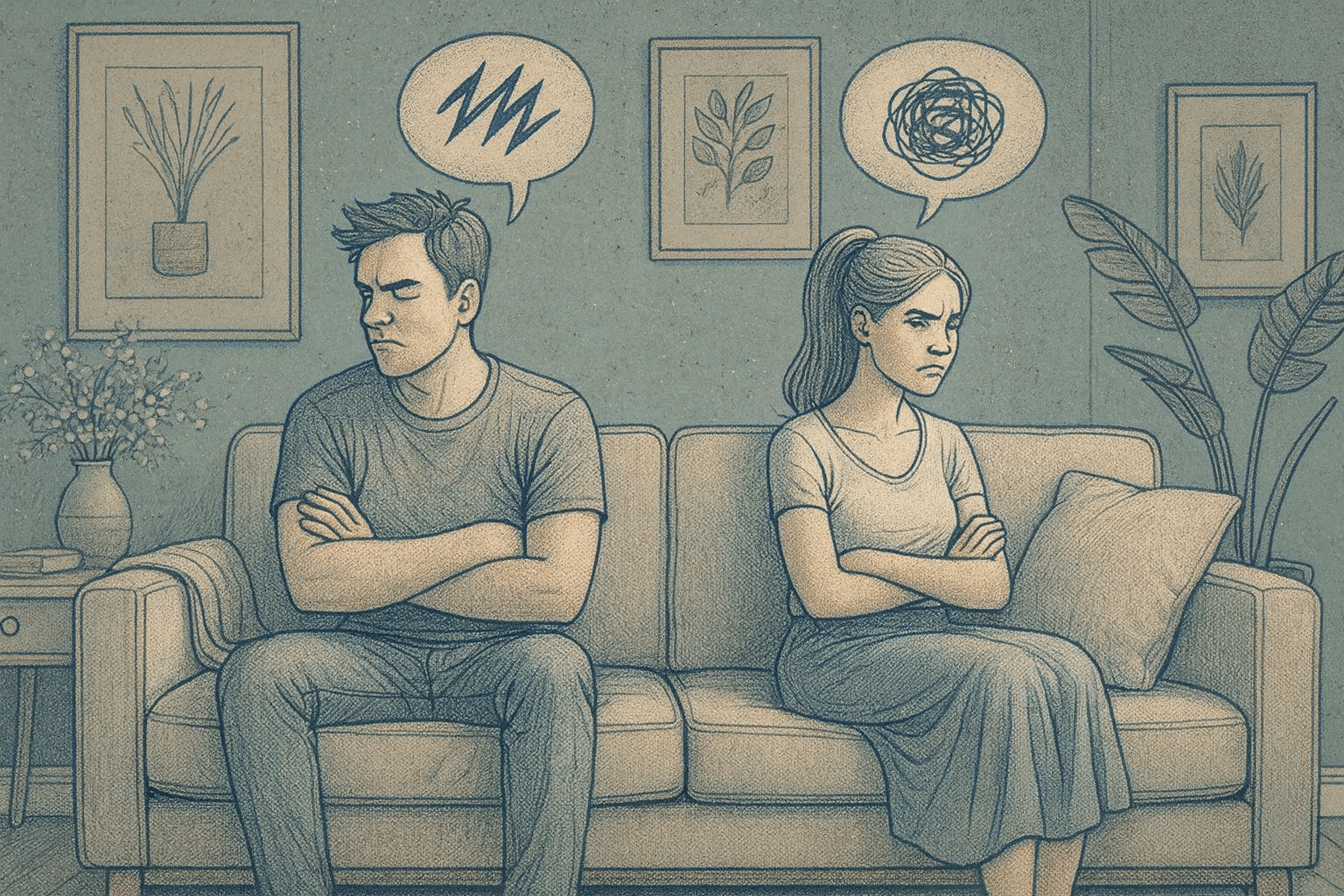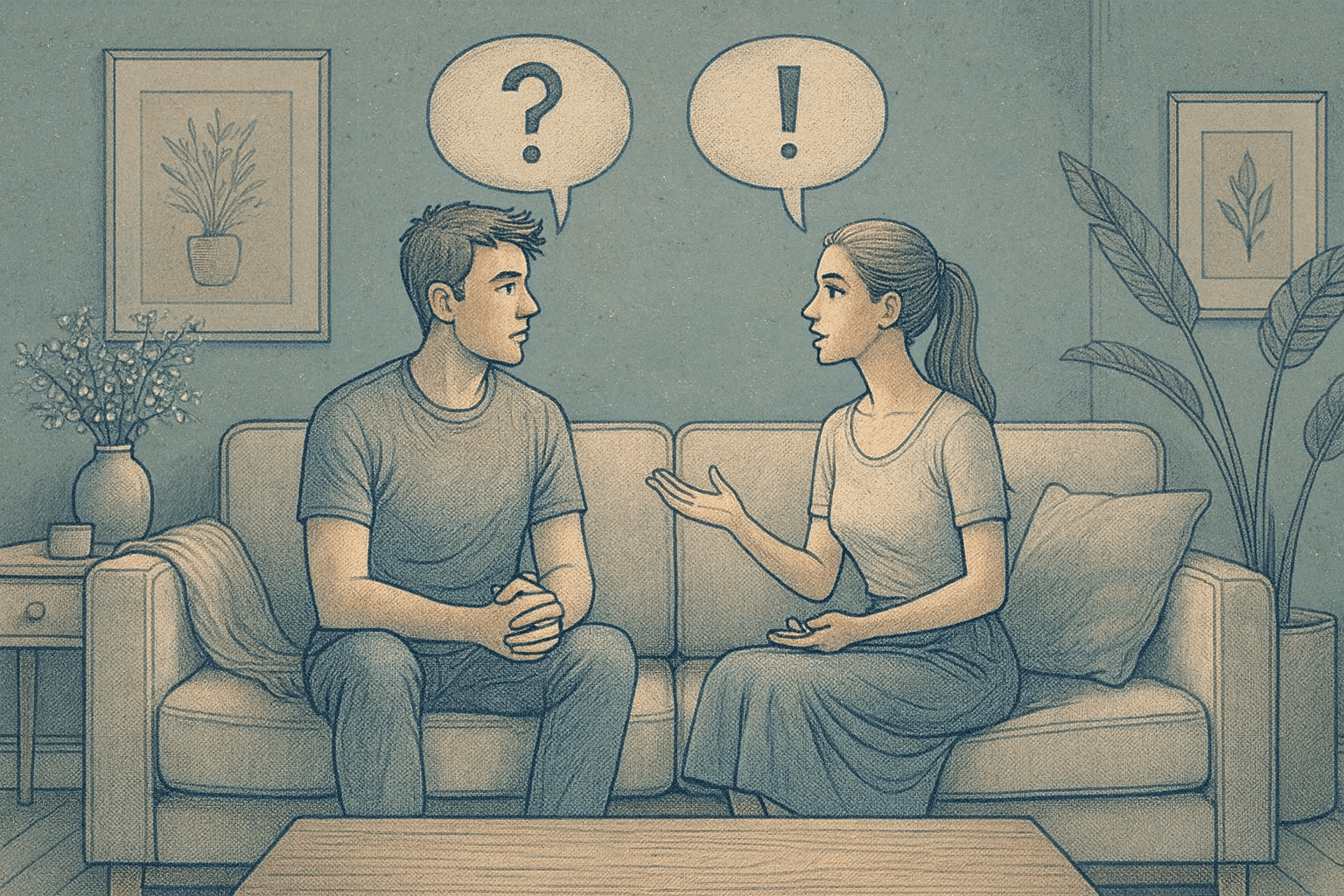
Key Takeaways
- Oppositional Defiant Disorder (ODD) in adults manifests as a pattern of hostile, argumentative behaviors that significantly impact relationships and daily functioning.
- Adults with ODD often struggle with authority, have difficulty managing anger, and experience challenges maintaining healthy relationships due to persistent negativity.
- Effective communication strategies, such as using clear language and offering choices instead of commands, can significantly improve interactions with someone who has ODD.
- Setting consistent boundaries and learning de-escalation techniques are essential for maintaining a healthy relationship with an adult who has ODD.
- Mission Connection Healthcare provides flexible outpatient care for behavioral and emotional regulation challenges, including ODD. Through therapy, psychiatric support, and medication management, offered in-person, online, or hybrid, we help clients strengthen relationships and create more balanced lives.
What is Oppositional Defiant Disorder in Adults?
Oppositional Defiant Disorder is characterized by a persistent pattern of angry mood, argumentative and defiant behavior, and vindictiveness that significantly impairs social, occupational, or other important areas of functioning. While typically diagnosed in childhood, ODD can continue into adulthood, though it often presents differently than it does in children. Adult ODD is not simply being stubborn or strong-willed; it’s a recognized mental health condition that affects how a person interacts with the world around them.
In adults, ODD often manifests as persistent negativity, hostility toward authority figures (including bosses, law enforcement, or even partners in a relationship), difficulty accepting responsibility for their actions, and a tendency to blame others for their problems or mistakes. These behaviors aren’t occasional bad moods or normal disagreements; they represent a consistent pattern that causes significant distress or impairment in daily functioning.
Mission Connection offers flexible outpatient care for adults needing more than weekly therapy. Our in-person and telehealth programs include individual, group, and experiential therapy, along with psychiatric care and medication management.
We treat anxiety, depression, trauma, and bipolar disorder using evidence-based approaches like CBT, DBT, mindfulness, and trauma-focused therapies. Designed to fit into daily life, our services provide consistent support without requiring residential care.
Why ODD Creates Relationship Challenges
The Defiance-Hostility Cycle
Oppositional Defiant Disorder often fuels a defiance–hostility cycle that can erode relationships over time. It usually starts when the person with ODD interprets a request as criticism or control, sparking resistance. Their partner responds with frustration or more forceful demands, which only strengthens the sense of being controlled and deepens the defiance. Recognizing that this pattern is tied to the disorder, not personal rejection, is the first step toward change.
Power Struggles and Control Issues
Control is often at the heart of conflicts. Even simple decisions can become battlegrounds, not because the person with ODD cares deeply about the choice, but because agreeing may feel like giving up autonomy. This sensitivity often stems from early experiences of feeling powerless, making everyday negotiations exhausting for both partners.
Emotional Impact on Partners and Family Members
Living with constant opposition can leave partners drained, frustrated, and unsure of themselves. The unpredictability of interactions creates tension and can lead to anxiety, low self-esteem, or depression. Some partners feel gaslit when behaviors are denied or blame is shifted, especially since people with ODD may seem perfectly agreeable in other settings.
5 Effective Communication Strategies That Work
1. Use Clear, Direct Language Without Blame
When communicating with someone who has ODD, clarity is essential. Ambiguous language or hints can lead to misinterpretations and defensive reactions. Instead, use straightforward, specific language that focuses on behaviors rather than character judgments. For example, say “I feel frustrated when our plans change at the last minute” rather than “You’re so inconsiderate and never think about my feelings.” This approach reduces the likelihood that the person will feel attacked and become defensive.
Avoid using absolutes like “always” and “never,” which can immediately trigger opposition. These generalizations rarely reflect reality accurately and give the person with ODD something concrete to argue against, derailing the actual issue at hand. Instead, focus on specific instances and current situations rather than trying to address patterns of behavior in a single conversation.

2. Choose Your Battles Carefully
Living with someone who has ODD means recognizing that not every issue requires confrontation. Ask yourself: “Is this worth a potential conflict? How important is this in the grand scheme of our relationship?” Prioritize addressing behaviors that significantly impact your well-being or violate important boundaries, while letting go of minor irritations that won’t matter in the long run.
When you do decide to address an issue, timing matters tremendously. Avoid bringing up concerns when either of you is hungry, tired, stressed, or in public situations. Choose moments when you’re both relatively calm and have privacy and time to discuss the matter fully. For someone with ODD, feeling “put on the spot” can immediately trigger defensive reactions.
This selective approach isn’t about avoiding all difficult conversations, but rather about being strategic with your emotional energy. By focusing on what truly matters, you create space for more productive discussions around significant issues while building goodwill through flexibility on minor matters.
3. Validate Feelings Without Agreeing with Behaviors
One of the most powerful communication tools with someone who has ODD is validation of their emotional experience, even when you disagree with their behavior or perspective. Statements like “I can see why you’d feel frustrated about that” or “That makes sense from your perspective” acknowledge their feelings without necessarily agreeing with their conclusions or actions. This validation often defuses defensiveness and creates openings for more productive conversations.
4. Offer Choices Instead of Commands
Adults with ODD typically respond poorly to directives or commands, which can trigger automatic opposition. Instead, present options whenever possible, which preserves their sense of autonomy while still moving toward necessary outcomes. For example, rather than saying “You need to call the insurance company today,” try “The insurance needs to be handled by Friday. Would you prefer to call them today or tomorrow?”
This approach works particularly well because it honors the person’s need for control while still addressing the underlying requirement. The key is to offer genuine choices that you can live with, rather than attempting to manipulate them into a pre-determined outcome. When people with ODD feel respected in this way, they’re often more willing to collaborate.
5. Practice Active Listening Without Interruption
Many adults with ODD have a deep-seated fear of not being heard or understood, which can fuel their oppositional behaviors. Demonstrate genuine interest in their perspective by practicing active listening: maintain eye contact, avoid interrupting, and periodically summarize what you’ve heard to confirm understanding. This approach helps satisfy their need to be acknowledged and can reduce defensive reactions in future conversations.
Setting Healthy Boundaries with Someone Who Has ODD
Identify Your Non-Negotiables
Start by knowing your non-negotiables; the behaviors you absolutely won’t accept, such as verbal abuse or intimidation. Define them clearly and communicate them calmly during a neutral moment so there’s no room for dispute. Clear boundaries are easier to enforce and harder to challenge.
Managing Your Own Emotional Responses
Confrontational behavior can spark strong reactions, but staying regulated is key. Recognize your triggers and physical signs of tension, then use calming techniques like deep breathing or taking a short break before responding. This helps prevent the cycle from escalating.
Setting Realistic Expectations
Progress with ODD is gradual. Even with effort and support, some oppositional tendencies will likely remain, especially under stress. Focus on improvement rather than perfection, and don’t let setbacks overshadow the progress you’ve made together.
Hope and Healing with Mission Connection

Living with conditions like Oppositional Defiant Disorder can put a strain on both the individual and their loved ones, which is why our care is built around meeting you where you are and giving you the right tools, guidance, and support to move forward. Mission Connection provides flexible, high-quality outpatient mental health care for adults and young adults navigating challenges such as anxiety, depression, trauma, mood disorders, and behavioral concerns like ODD. Our multidisciplinary team works with you to design a treatment plan that respects your life, your goals, and your schedule.
Our approach combines individual therapy personalized to your unique needs, group therapy sessions that build skills and emotional resilience, and psychiatric services with medication management to address co-occurring symptoms.
Healing should be accessible, compassionate, and collaborative, so we make it easy to get started. With insurance-friendly options, services across California, Virginia, and Washington, and a simple process from consultation to ongoing care, you can start your journey toward real change without unnecessary obstacles. Here, you’re part of a community committed to helping you find stability, strengthen relationships, and create the life you want.
Call Today 866-833-1822.
Frequently Asked Questions (FAQ)
Can adults truly be diagnosed with Oppositional Defiant Disorder?
Yes. While often identified in children, ODD can persist or appear for the first time in adulthood. In adults, it may show up as ongoing negativity, hostility toward authority, and strained relationships rather than obvious defiance. It often coexists with ADHD, anxiety, or substance use issues, making evaluation by a mental health professional essential for accurate diagnosis.
Is ODD the same as being stubborn or strong-willed?
No. Stubbornness or strong will can be healthy traits, but ODD is a clinical condition marked by persistent anger, defiance, and vindictiveness that disrupt daily life. The difference lies in the intensity, frequency, and consequences of the behavior.
How do I know if my partner’s defiant behavior is ODD or something else?
Other conditions, like certain personality disorders, bipolar disorder, or substance use, can look similar to ODD. The distinction lies in a consistent pattern of oppositional behavior across settings, often without clear provocation. If behavior includes violence or control, it may be abuse, not ODD, and safety should come first.
Can someone with ODD have a successful long-term relationship?
Yes. With self-awareness, healthy boundaries, strong communication, and professional support, adults with ODD can have fulfilling, lasting relationships.
How can Mission Connection Healthcare help someone dealing with ODD-related challenges?
Mission Connection Healthcare provides individualized outpatient care, including therapy, psychiatric services, and medication management in-person, online, or hybrid. Using CBT and DBT, we help clients improve emotional regulation and relationship skills while supporting loved ones in developing effective coping strategies.


